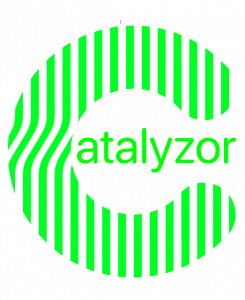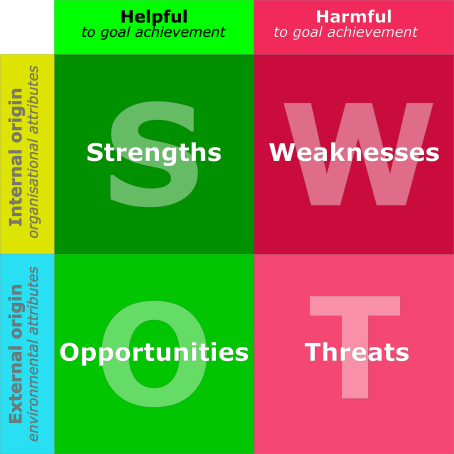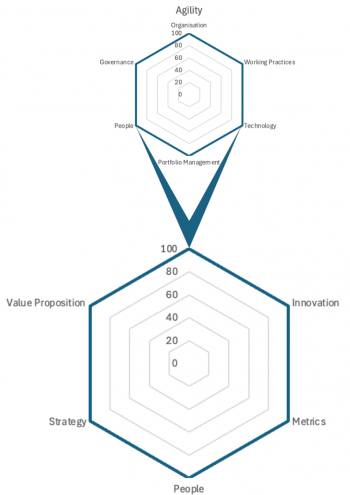
Facilitate | Develop | Thrive
We work with partners to prosper through collaboratively setting goals, tracking progress, optimising progress, and executing strategies.
Inspiration
Our inspiration comes from chemical synthesis. The aim is for a sequence of reactions to produce the best yield of desired product.
Finely tuning the reaction conditions is often not enough. Through adding a catalyst, the reactions’ dynamics are altered. More useful products are generated through different reaction pathways, consuming less energy, and more quickly.
Hence the rationale behind our name, Catalyzor.
Optimise
Catalyzor helps minimise your wasted effort. Effort being the consumption of resources, usually expressed in terms of time and money.
Hindsight is an intangible commodity. From systematic review and analyses, lessons can be learnt from mistakes made.
Working together, your organisation and Catalyzor will optimise decision-making and governance practices. A central component of this is often the dynamic use of our ROP, Realising Organisational Potential, methodology.
Through continual review of goals, and the determination of a dynamic strategy to reach them, we can help you realistically minimise wasted effort. This can represent the difference between success and failure.

Strategy
“a: a careful plan or method : a clever stratagem
“b: the art of devising or employing plans or stratagems toward a goal”
Definition: Merriam Webster
Only used in the corporate context since the 1960s; strategy is too often considered solely for those in the realm of senior management and their advisers. At Catalyzor, we demystify this view.
For over 2,500 years, since Sun-Tzu wrote “The Art of War,” it has been clear to the military that preparedness is crucial for strategic success.
An organisation’s strategy is the overarching set of strategic initiatives it pursues to create value for itself and its stakeholders, and gain a competitive advantage in the market. This is not purely for profit-focussed organisations, where value and competitive advantage are expressed financially. Third sector organisations have similar objectives, where value and competitive advantage might be more easily expressed in social capital and social benefit terms.
For an organisation, awareness of the commercial/operating and regulatory environments is vital for successful strategy execution. Knowing current and future competitors, anticipating their behaviours, and negotiating other obstacles are critical to strategic success and goal attainment.
Strategies are embedded throughout an organisation. They are the processes by which resources are combined and expended to achieve a result. They exist at every level to deliver everything from overarching organisational goals, via departments and teams, to individuals’ objectives. Whether a one-person operation or a complex multinational, strategies, whether named as such or not, are used to deliver results.
We focus on providing clear insights into efficient goal achievement and strategic process optimisation.

Objectivity
The use of planning tools, such as the ubiquitous SWOT analysis, can be highly beneficial. But this is only the case if done so with an awareness of likely subjectivity in any self-assessment, and of the dangers of listening to a limited range of voices. In order to effectively assess its competencies and limitations, let alone factors in the environment that pose threats or offer prospects, an organisation must have a clear, dispassionate view of itself. All too often it does not. This is not easy. Some examples of contributors to poor outcomes that we see too often in organisations are:- Optimism bias allowing the formation of a dangerous ‘bubble’ of over-confidence. Only positive inputs are processed; even constructive criticism is shut out. This can happen within the organisation itself or, even more worryingly, in the broader community of interest of which it is part.
- Lack of knowledge and/or unwillingness to process and incorporate new information as it becomes evident. The strategy goes off course, pursuing a mirage of what the organisation perceives the goals will satisfy.
- Reliance on statistically insignificant or obsolete data, particularly where it reinforces optimism bias.
- Blind faith in goals without adequate validation from those who will, apparently, benefit from them.
ROP
Our holistic philosophy toward achieving goals is Realising Organisational Potential. Since goals change and conditions shift, this is an ongoing process. Organisations must regularly reconfigure to perform optimally in their environment.
Pillars, supports, and cohorts
Our approach centres on pillars, supports, and cohorts
Pillars are the fundamental factors determining an organisation’s capacity to thrive. For most survival is insufficient, success is key. We identify six pillars:
- Agility – the ability to respond to and gain from change.
- Innovation – embedding and capitalising on creativity in the organisation.
- Metrics – defining and measuring meaningful parameters for effective management decision-making and risk mitigation
- People – effectively rewarding and harnessing their creativity and competencies.
- Strategy – the crucial framework of initiatives for success.
- Value Proposition – maximising the worth of the organisation’s assets.
Each pillar’s stability is determined by supports, which are scored based on cohorts’ experiences. Analysing these scores provides valuable insights and recommendations for optimising organisational potential.

Cohorts are identifiable groups of stakeholders. They can be internal (teams, departments, job roles.) or to the organisation, or external (customers, suppliers, shareholders etc.). In certain cases it can prove useful to analyse a cohort comprised of one individual. Comparing their perceptions and experiences provides invaluable insights. Addressing disparities between cohorts and optimising pillar scores are crucial for initiating feedback and ensuring optimal outcomes. Failure to do so results in poor strategy execution, wasted resources, and lost opportunities.
For example, take our questionnaire, which places you in a fictitious organisation, as a member of Team A, assessing agility.
Reach out
We will be happy to respond to your initial enquiry via the contact form below. Naturally, going forward, we shall be pleased to discuss your issues on an on-site, face-to-face basis.
© 2024-2025, Catalyzor Ltd – All Rights Reserved, save as otherwise credited.
Registered office: 5 South Charlotte Street, Edinburgh EH2 4AN.
Registered in Scotland at Companies House, number SC816567.